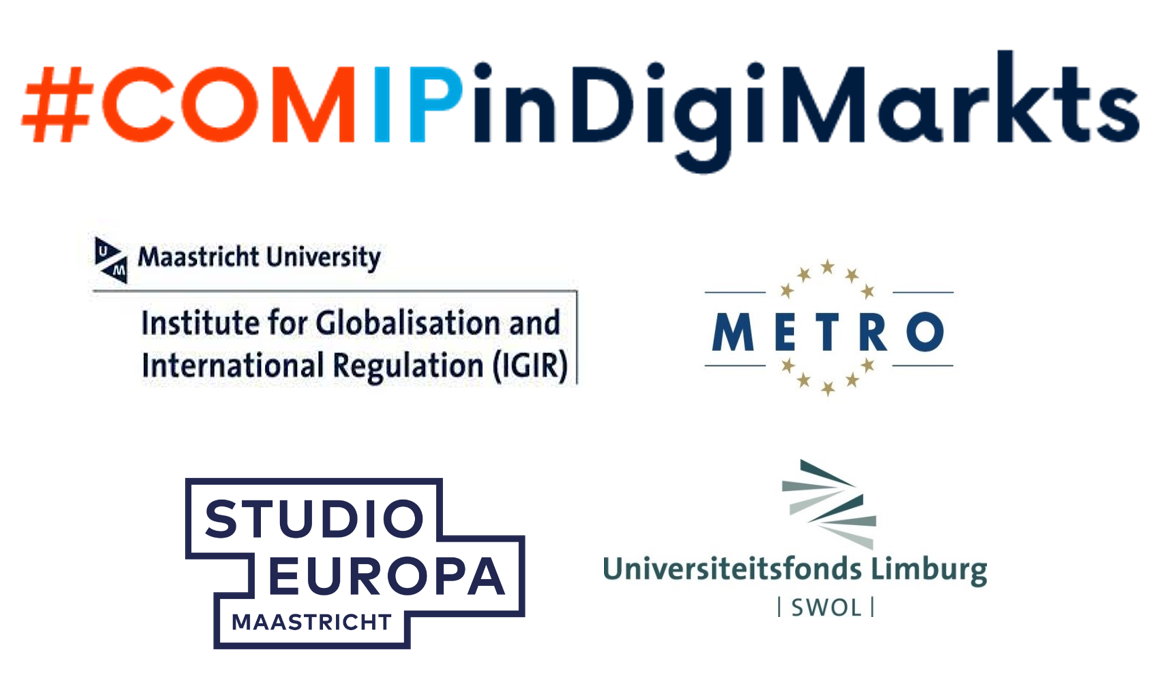Whither economic regulation for the digital markets: Is regulatory vacuum or regulatory capture likely?

Some conducts encountered in digital markets, e.g. killer acquisitions, self-promotion and marketing strategies, non-transparent and discriminatory interfaces, signify a need for ex ante regulation, as widely acknowledged. The European Commission, UK Government and US Senators proposed legislative measures to cope with such potential or actual market failures. Against such legislative responses, one can pose the question whether or to what extent economic regulation principles are respected on each side of the Atlantic.
Proposed digital markets regulations in general
It is widely acknowledged potential harms accompany the consumer benefits engendered with the digital markets and their growth. To respond to such harms, the European Commission, UK Government and US Senators proposed legislative measures for ex ante regulation of digital markets, which have particular remit and significance for the global platforms that attract the competition law scrutiny and investigations for their killer acquisitions, restricting interoperability, self-promoted products, etc.
European Commission has published the Digital Market Act (DMA) Proposal in December 2020 to address various structural and behavioural conducts of the so called ‘gatekeepers’, based on a framework entailing certain qualitative/quantitative thresholds, novel remedies and investigatory tools. DMA Proposal has gone through the Parliamentary review ending up with a number of amendments in December 2021 and now is through trialogue between the EU Council, Parliament and Commission. In the UK, the regulatory process has been initiated by the Competition and Market Authority (CMA)’s market study (July 2020) and an advice (December 2020) that largely mirrored in the UK Government’s consultation document titled ‘a new pro-competition regime for the digital markets’ (July 2021) and is now awaiting the ultimate response on the part of the government. The US experience seems to be more complicated and disunited. The four US Bills, each proposed in 2021, lay down the ground for ex ante regulation of digital markets in potential. Such proposals include the American Choice and Innovation Online Act (US Bill HR3816), Ending Platform Monopolies Act (US Bill – HR3825), Platform Competition and Opportunity Act (US Bill – HR3826) and Access Act ((US Bill – HR3849). Although reminiscent of the EU and UK for the proposed remedies, most distinctive aspect of the US approach is both civil and administrative actions are enforceable on the face of abusive behaviours by the digital market players.
Regulatory proposals emergent in the EU, UK and US respond to the structural and behavioural distortion of competition in the digital markets. Notwithstanding, each proposal reveals a differentiated approach in terms of the proposed tools, mechanisms and remedies.
What do the proposed regulations aim to achieve?
EU Commission’s DMA Proposal aims to regulate ‘core platform services’ based on the distinct ex ante regulatory instruments as a complement to competition law. The Proposal sets out a number of obligations to be imposed on gatekeepers which are specified in Articles 5 and 6, i.e. concerning self-preferencing, interoperability, uninstallation of pre-installed software, most-favoured-customer-clauses, and are expanded in Articles 12 and 13, i.e. concerning notification of intended mergers and submission of consumer profiling techniques. Crucially, the DMA Proposal empowers the Commission, in the case of systemic non-compliance, to impose any behavioural or structural remedies, meaning further restrictions on gatekeepers would loom on the horizon.
UK approach is less ambitious in terms of the specified obligations and more focused on the high-level principles, evidence finding and investigation tools for the pro-competitive digital markets. At the centre of the UK’s approach lies the code of conduct to be published by Digital Markets Unit (DMU), the specialised unit under CMA. Among the players, those who are found to enjoy ‘significant market status’ (SMS) like gatekeepers will be subject to ex ante obligations under the guidance of the DMU. The flexibility comes up with the regulatory dialogue envisaged throughout the process to be run by the DMU vis-à-vis the SMS players, which denotes a bottom-up policy approach as opposed to the EU’s approach.
The least competition tone can be found in the proposed US Bills, e.g. American Choice and Innovation Online Act, which prohibits certain practices (e.g., self-preference, discrimination, impeding interoperability) that mostly appear to be self-executing. This Bill provides an emphasis on private enforcement, in conjunction with other Bills, e.g., the proposed Ending Platform Monopolies Act, Platform Competition and Opportunity Act, Access Act, whereas the latter Bill (Access Act) far more emphasizes improving interoperability and related obligations to be imposed on covered platforms to enable the secure transfer of data to users via transparent and third-party-accessible interfaces. Notwithstanding, the self-executing nature of the obligations are contrasted with the lack of key definitions e.g. regarding covered platforms as well as the unclarity as to enforcing the remedial actions, e.g. the conditions for seeking judicial reliefs as well as regulatory dialogue.
Policy implications from the perspective of economic regulation
Economic regulations mean direct intervention into decisions by market players concerning market entry or exit, pricing, product features in order to maximise the consumer welfare, most often by aspiring competition in the relevant markets. As widely acknowledged, the absence of these regulations can lead to market failure. Digital markets, although offering a great many benefits to the society, give some signals of market imperfections for the structural and behavioural problems, e.g. killer acquisitions, self-promotion and marketing strategies, discriminatory user interfaces. Yet, law and policy makers’ responses need to be revisited against such potential or actual market failures, and the principles of economic regulation would be instrumental in this respect.
From the viewpoint of economic regulation, one would pose several questions, including (i) how the digital goods and services that are to be regulated are contextualised; (ii) what criteria will apply to designate the behaviours that need to be addressed; (iii) what tools and remedies are contained to correct such behaviours, to eliminate the market failures. Through this three-pronged lens (or regulatory chains), proposed regulatory approaches across the Atlantic are reviewed from a comparative perspective to draw useful lessons with respect to economic regulation.
Overall, the principles of economic regulation are found to have varying degrees across the proposed measures and policies of each country. While a reasonable distinctiveness can be mentioned as far as context is concerned e.g., respectively based on the ‘core platform services’ (EU), ‘digital businesses’ (UK) and ‘covered platforms’ (US), the criteria to define market failures that need to be corrected pose uncertainty in general. The approach of the CMA - as mostly acknowledged by the UK government - promises a more evidence-based policy along with a regulatory flexibility. This bottom-up policy is also visible as for the containment of the applicable remedies against the distortive practices to competition within the UK approach. Not only the indicated responses in each regulatory chain (of ‘context, criteria and containment’) but also their overall integrity emerge as key thrust for a sound policy of economic regulation, tipping the balance in favour of the UK.
As the study revealed, well justified links within and across the so called regulatory chains are not established in the EU and US proposals the same as one could recognise in the UK approach. For instance, the obligations under the Articles 5 and 6 of the DMA Proposal are meant to change the market structure and the behaviours of the gatekeepers. Lack of well justified links between gatekeeper designation (‘context’) and such obligations (‘containment’) could however make the whole system fragile and less sustainable, as no underlying reason is given for their straightforward connection from the perspective of economic regulation. The same can be upheld for the US Bills whereby certain behaviours of the digital platforms are directly prohibited with no well-established link to ‘contextualisation’ of the related services or to a proper design (‘containment’) of the potential remedies for the instances of anti-competitive behaviours. Self-executing obligations would themselves mean a good regulatory chain among all yet are questionable for having no economically justifiable connection with the first two chains, namely ‘context’ and ‘criteria’. Leaving all the questions to the regulatory dialogue or discretion – which seems a likely scenario in the US for the unclarity as to the judicial or administrative remedies – would make the practitioners fall into the trap at the other end of the spectrum: regulatory arbitrariness or capture which is contrasted with the regulatory engineering or vacuum that seems possible in the EU’s pathway.
In sum, unsubstantiated links within and across the regulatory chains (of ‘context, criteria and containment’) cast doubt as to the soundness of economic regulation, as particularly seen in the EU and US approaches. Given this, the current regulatory approaches particularly in the EU and US would not best serve to the economic regulation of ever-fast evolving digital platforms. They seem to likely fall into two separate traps near or at the two far ends of the regulatory spectrum, more explicitly the regulatory vacuum and capture, respectively. Based on this cross-country analysis, this study upholds the view that the unsubstantiated links within and across the regulatory chains which has more visibility in the EU and US needs revisiting for a coherent economic regulation approach.
| This guest blog was written by Mehmet Bilal Ünver for the IGIR and METRO Faculty of Law Maastricht #COMIPinDigiMarkts2022 project - More blogs on Law Blogs Maastricht |

This guest blog is part of the project #COMIPinDigiMarkts2022. These blogs have been specially prepared by participating internal and external project members and focus on competition law and IP law, with particular reference to the digital markets.